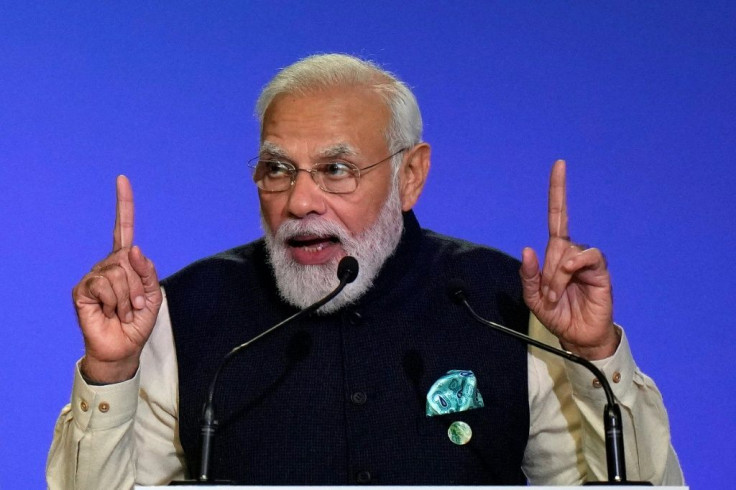India’s Impeccable Balancing Act On Ukraine Crisis

Right from abstaining to vote against Russia in the UN, to sending relief material to Ukraine, India has so far managed to perform the impeccable balancing act on the Russia-Ukraine crisis which seems to have divided the world.
With India emphasizing the importance of de-escalation in Ukraine following Russia's invasion, while avoiding ascribing responsibility for the violence, the South Asian superpower is treading a differing diplomatic high-wire.
Despite the Biden administration repeated call on India to distance itself from Russia, New Delhi has not fallen in line. This is mainly due to the weapons connection as Russia is India's major security partner and a trusted ally.
If the U.S. and NATO get bogged down in Ukraine, then the U.S. focus on Asia and China will be diluted. This does not augur well for India which is closely engaged with the U.S. on the Indo-Pacific initiative on security.
Again, if Russia--West ties become tense then India's relations with Russia will become complicated. That is the reason India has managed to keep two relationships separate from 2014 onwards.
While Russia has been its trusted ally for decades, India needs U.S. help given the threat to Indian borders from China and Beijing's attempts to dominate the South China Sea. Thus, India balanced its reaction and support by playing neutral.
Two days after the Russian invasion of its East European neighbor, India's Prime Minister Narendra Modi spoke with Ukrainian President Volodymyr Zelenskyy, seeking to end the violence.
"[Modi] reiterated his call for an immediate cessation of violence and a return to dialogue, and expressed India's willingness to contribute in any way towards peace efforts," said an Indian foreign ministry statement.
To keep an aggrieved Ukraine in the good books, India has sent humanitarian aid to Kiev.
On the same day Russia invaded Ukraine Feb. 24, Modi spoke with Russian President Vladimir Putin where he aired India's neutral stand.
"Prime Minister [Modi] reiterated his longstanding conviction that the differences between Russia and the NATO group can only be resolved through honest and sincere dialogue," India said in a statement.
On March 2 when the UN General Assembly voted on a resolution that deplored Russia's attack on Ukraine, India along with 35 other nations abstained. Earlier, India abstained from the UN Human Rights Council the IAEA resolutions critical of Russia.
When Putin annexed the Crimean Peninsula in 2014, the then Manmohan Singh government had taken a neutral position.
India's abstentions disappointed many western countries which have been lobbying for a shift in the Indian stand. According to analysts, India's abstentions at the UN platforms are the result of its security concerns and India's nuanced position on conflicts involving the U.S. and Russia.
Though India made structural adjustments in 1991 to allow western companies to tap the vast Indian market, its cooperation with Russia on security matters grew many folds which prevented access to western arms makers.
Despite its much closer ties with the United States in recent years, and India's presence in the QUAD alliance, aimed at countering China, New Delhi has pursued a separate policy when it came to Russia and its deadly weapons.
According to the Stockholm International Peace Research Institute (SIPRI), India received an estimated 23 percent of all Russian arms exports between 2016 and 2020, which made up for 49 percent of Indian arms imports in the same period.
Defying Washington, India possessed the Russian S-400 ground-to-air missile defense system in December 2021, which took place when President Putin visited New Delhi.
India will find it difficult to take delivery of Russian S400 missiles due to U.S. sanctions on Russian banks. But that is of least interest to New Delhi, given its security ties with Russia.
Though India abstained from every vote at the UN and other organizations that criticized the Russian invasion of Ukraine, India took part March 3 in the sudden QUAD grouping along with the U.S., Japan, and Australia, which have been calling for a tough line on Moscow.
The coming together of the QUAD leaders and the demonstration of unity, despite the divergence of views on the Russia-Ukraine crisis, also underlined their common position on the Chinese challenge.
In fact, Washington and others have slowly come to terms with India's stand on Ukraine, and a U.S. State Department cable, which said India's abstentions place it in "Russia's camp", was subsequently retracted as an "error."
The U.S. is in no mood to leave India alone for its stand on Ukraine. Another QUAD summit will be followed by an in-person summit in Tokyo when Biden is expected to make his first Asia trip in the coming months.
Again, at the virtual meeting, which was closed for the press, the Indian prime Minister emphasized "the need to return to a path of dialogue and diplomacy," a statement by India's Prime Minister's Office said after the meeting.
Bringing back stranded Indian nationals, including students, has been India's top concern and taking sides would have jeopardized the efforts.
There is also the Pakistani factor in India staying close to Russia at the time of a major flare-up. It was not coincidental that Pakistan Prime Minister Imran Khan was present in Moscow on the day of the Russian invasion. Khan's visit marked the first by a Pakistani prime minister in more than two decades.
At the instance of all-weather friend China, a nuclear Pakistan has been inducted with full membership into the Shanghai Cooperation Organisation (SCO). In December, Pakistani PM Khan lauded Putin's comments on insulting Prophet Muhammad.
Pakistan finding a place in the Russian camp has worried India as a deadly combination of China-Russia and Pakistan will be too big for New Delhi to withstand in aftermath of a major flare-up.
India's policy to remain an abstentionist and play neutral in the ongoing Ukraine crisis suits its aspiration for global leadership.
























